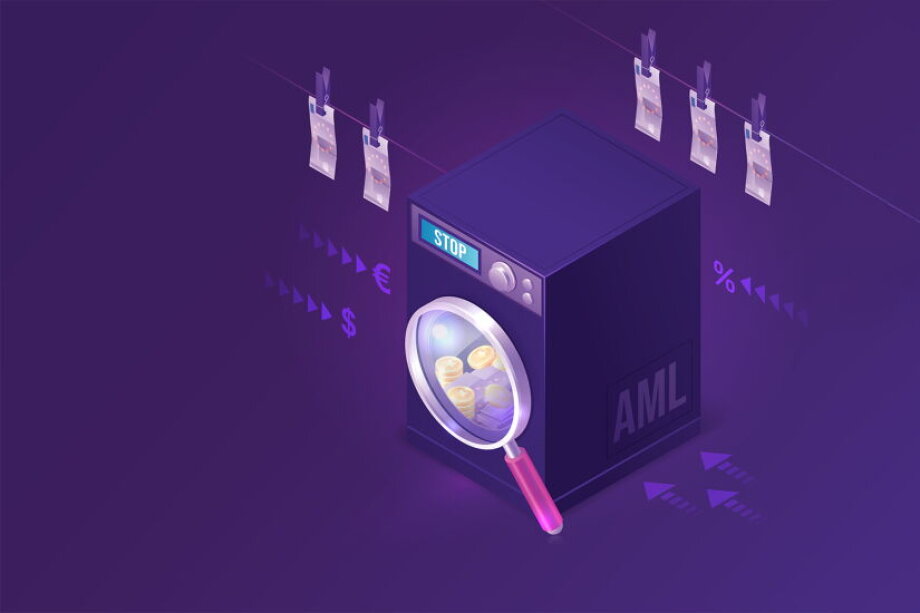What is AML and why is it worth investing in?
"The true costs of money laundering cannot be counted, but what we know about its impact is staggering"

"The true costs of money laundering cannot be counted, but what we know about its impact is staggering"

By Morten Lindholm
What is money laundering?
The definition/term of Anti-money Laundering (AML) comes from the 20th century when money laundering became so crucial from the criminal perspective. Money laundering has been known about for hundreds or even thousands of years. Previously, criminal proceeds could be hidden from government autocrats and not be taxed or seized. Until a certain time in history, you could have almost as much money as you wanted, and no one was interested in where it came from – whether you had stolen it, found it, or legitimately acquired it. But by the 20th century, people risked jail if they did not pay taxes on their income or have an explanation for how they acquired their funds. Thus, the definition of money laundering is creating the appearance of a legitimate source for the monetary proceeds of a crime.
The term "money laundering" comes from the US gangster Al Capone. He grew wealthy from the illegal production of alcohol and other organized crime activities. To avoid being connected with these crimes, he would pass money through a chain of laundries that he owned in Chicago. As this was a cash-based business, he was able to prove that his wealth was coming from the laundry chain.
The same is pretty much true today
One of the methods for hiding illegal funds from the proceeds of a crime is to cover it up through seemingly legitimate transactions in shell companies, front companies, or legitimate companies where the unlawful funds are co-mingled with legal monies and then reported as coming from legitimate business activities.
So what is Anti-money Laundering?
Anti-money Laundering (AML) encompasses all the countermeasures that link seemingly-legitimate criminal proceeds with their actual origin and then connect them to the perpetrators.
For example, imagine you are combating drug trafficking or organized crime. If you can cut the criminals off from the source of their funds so they cannot use them, you eliminate any reason for them to commit the crimes. Unfortunately, statistics show that most criminal activities are committed for illegal profits.
When you organize proper and effective AML measures, you can cut the criminals off from the source of their funds. Also, once you find them and seize the proceeds of the crime, you can protect society and the economy from the impact of the crime. That is the primary reason why AML is increasing in importance.
Criminal activity is similar to regular business
Most commonly, you run a business to acquire profits. The same goes for illegal business activities. If the profit margin related to the risk that criminal law enforcement can catch you is narrow, then it is not worth committing the illicit activity.
For example: Let us look back at the moment when the European Union grew to encompass 27 countries. Just through the extension, the EU suddenly had access to harbors and shores along the Black Sea, which were quite far away from" old" European countries. This meant that criminals no longer needed the ports on the North Sea to get drugs into Europe, i.e., Rotterdam or Amsterdam. The bribes needed for the custom officers in Black Sea areas were also approximately four times cheaper than in Rotterdam. Drug traffickers were able to optimize the costs of bribery and corruption through the Black Sea, increasing the profitability of their drug smuggling.
So how big is the problem of the grey economy?
It's a massive challenge in many dimensions. It doesn't only impact the spending of public funds on enforcement or monitoring.
For example, take a look at the fatalities caused by drug trafficking. Drug overdoses kill approximately 10,000 Europeans every year. But when you add in the effects of extra criminal activities that occur due to drug trafficking, the total number of fatalities increases by another 10,000 deaths every year.
Drug trafficking is a significant source of laundered funds, so this area is a crucial focus for anti-money laundering activities. But think about how many resources are being invested in solving this issue. And don't forget the victims of other financial crimes, where in the best case, they just lose the funds they've been working hard to gain. If we spoke about the economic scale of this, it's estimated that 2%-5% of GDP globally is laundered annually. This is why anti-money laundering is so essential. We are fighting to reduce the significant amount of money earned on crime and eliminate its negative impact on all of us.
Have cryptocurrencies made money laundering easier?
People might argue, especially those from Fintech and the cryptocurrency market, that you can track the code when you have a blockchain. But there needs to be a more effective compliance framework. The fact that you can track Bitcoin and the code of the blockchain on which the Bitcoin is operating does not resolve the whole situation. A certain level of anonymity is built into the system.
For example, when the Ukrainian crisis emerged, many Russians fled from Russia with their funds. They transported their funds out of Russia and out of the reach of Putin via Bitcoin, diamonds, and cash. Who knows where those funds are now?